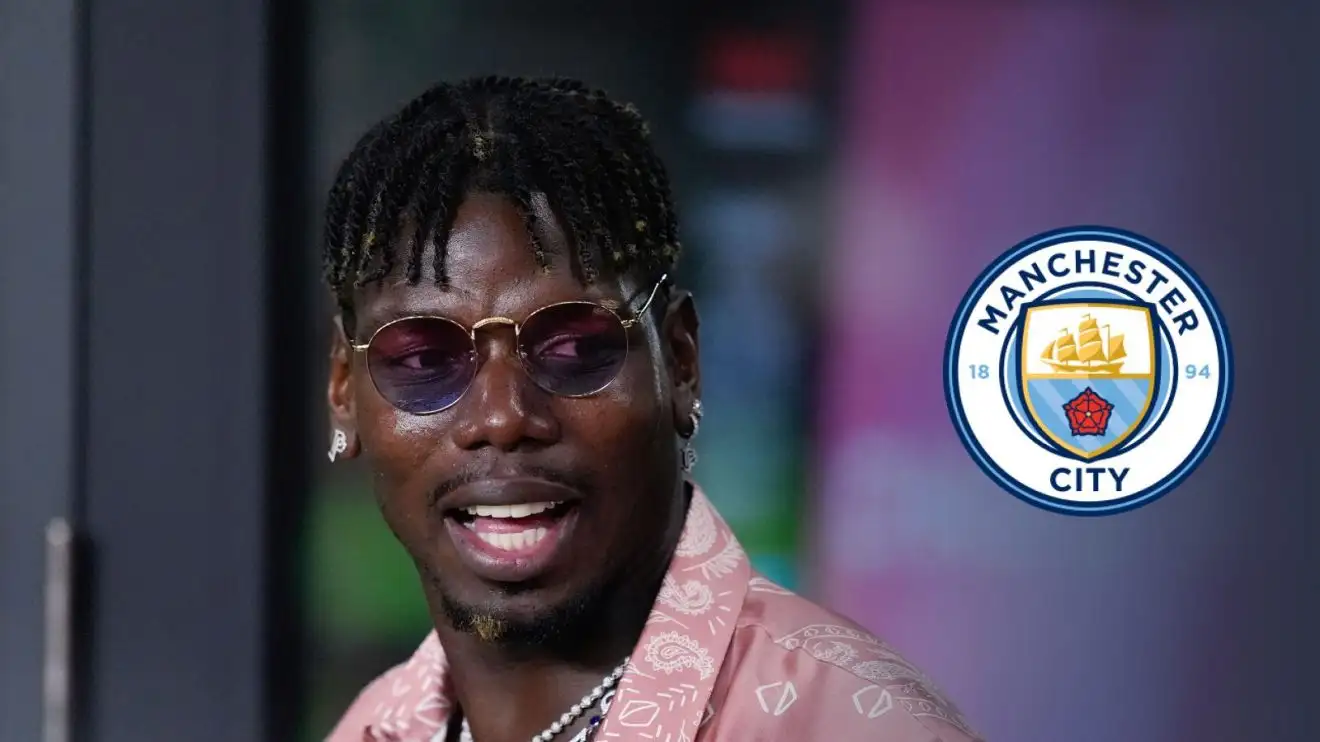
Paul Pogba’s potential transfer to Manchester City has set the football world abuzz with speculation. The midfielder, who has been sidelined by an 18-month doping ban, will be eligible to return to professional football in March 2025. This development has reignited interest in the French star, with Manchester City reportedly considering him as a potential addition to their midfield.
Pogba’s career has been a rollercoaster of incredible highs and challenging lows. A product of Manchester United’s youth academy, he moved to Juventus in 2012, where he blossomed into one of the most exciting midfielders in world football. His return to Manchester United in 2016 for a record-breaking fee was heralded as the move that would transform the club’s fortunes. While he delivered moments of brilliance, his second stint at Old Trafford was marred by injuries, inconsistency, and periods of strained relations with management.
In 2022, Pogba rejoined Juventus, hoping to rediscover his best form in a familiar environment. Unfortunately, his time in Turin was disrupted by the doping scandal that led to his ban. The suspension initially spanned four years but was later reduced to 18 months, allowing Pogba the chance to reignite his career.
As the end of his ban approaches, Manchester City has emerged as a surprise suitor for the player. Manager Pep Guardiola is reportedly interested in bolstering the squad’s midfield options, particularly with injuries to key players impacting the team’s performances. Pogba, known for his physicality, vision, and flair, fits the profile of a player who could complement City’s style of play.
However, the potential move comes with complications. Pogba’s history with Manchester United makes the prospect of him joining their local rivals a controversial one. It is a scenario that could provoke a strong reaction from fans, particularly those loyal to United. For Pogba himself, the emotional and professional ramifications of such a transfer would need to be carefully considered.
Additionally, Pogba’s preference for playing outside the Premier League may pose a challenge. Reports suggest he is more inclined toward opportunities in other European leagues, such as La Liga or a return to Serie A, where he has previously excelled. His experiences in England, characterized by intense scrutiny and sky-high expectations, may deter him from choosing a path that would see him return to the same environment.
From Manchester City’s perspective, the move is not without its risks. Pogba’s long absence from professional football raises questions about his match fitness and readiness to perform at the highest level. Moreover, integrating a player with such a high-profile history into a squad renowned for its harmony and discipline could present challenges for Guardiola and his coaching staff.
The potential transfer has also sparked debates among fans. For Manchester United supporters, seeing Pogba don the colors of their city rivals would likely be met with disappointment or even anger. Conversely, City fans are divided—some view Pogba as a valuable addition to the squad, while others are wary of the baggage that might accompany his arrival.
Despite the uncertainties, Pogba’s talent is undeniable. When fit and motivated, he possesses a unique blend of technical skill, creativity, and power that few players in the world can match. For Manchester City, signing him could be a masterstroke, adding a dynamic element to their already formidable midfield. For Pogba, it could be an opportunity to prove doubters wrong and write a new chapter in his career.
As March 2025 draws nearer, Pogba’s decision will undoubtedly become one of the most talked-about stories in football. Whether he opts to join Manchester City or seeks a fresh start elsewhere, the outcome will have significant implications for both his career and the broader football landscape. For now, all eyes remain on the Frenchman as he prepares to make his long-awaited return to the sport.
Leave a Reply